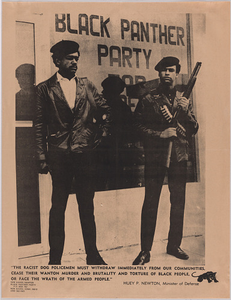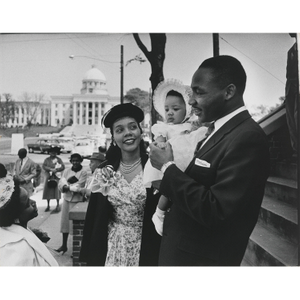Description
Having grown up in poverty in the Watts section of Los Angeles, Eldridge Cleaver spent much of his early life serving time in jail for a number of offenses, including rape. By the mid-1960s, however, his gifts for articulating the grievances of African Americans had drawn him into the radical wing of the black civil rights movement. Soon he was a leading spokesperson for the militant Black Panthers, who advocated arming for self-defense against the white establishment.His most significant contribution to the cause was a collection of fiery essays Soul on Ice, which became one of the most widely read statements of black anger in America after it was published in 1968. That same year, an armed confrontation with police drove Cleaver into exile, and after his return to the United States in 1975, his outlook grew increasingly more conservative.Habiendo crecido en la pobreza, en el sector Watts de Los Ángeles, Eldridge Cleaver pasó buena parte de su juventud en la cárcel por diversidad de delitos, incluso violación sexual. Sin embargo, hacia mediados de los años sesenta ya se distinguía por sus dotes para articular los reclamos de los afroamericanos y se había incorporado al ala radical del movimiento de los derechos civiles. Pronto se convirtió en un destacado portavoz de los militantes Panteras Negras, quienes abogaban por la autode- fensa armada contra la clase dirigente blanca.Su aportación más significativa a la causa fue un conjunto de fogosos ensayos publicado en 1968, Soul on Ice, que se convirtió en una...
Image
Gelatin Silver Print
National Portrait Gallery, Smithsonian Institution
Record Contributed By
National Portrait GalleryRecord Harvested From
Smithsonian InstitutionKeywords
- Activist
- Activists
- Book
- Books And Reading
- Church
- Church Buildings
- Cityscape
- Cityscapes
- Civil Rights
- Civil Rights Activist
- Cleaver, Eldridge
- Coat
- Costume
- Crowd
- Dress Accessories
- Dress Accessory
- Education
- Educator
- Educators
- Eldridge Cleaver
- Exterior
- Eyeglasses
- Founder
- Human Figures
- Jacket
- Leather Jacket
- Lecturer
- Literature
- Male
- Men
- Outerwear
- Portrait
- Portraits
- Printed Material
- Reformer
- Reformers
- Religion And Spirituality
- Shames, Stephen
- Sign
- Signs And Signboards
- Society And Social Change
- Sunglasses
- Writer
- Writers





















